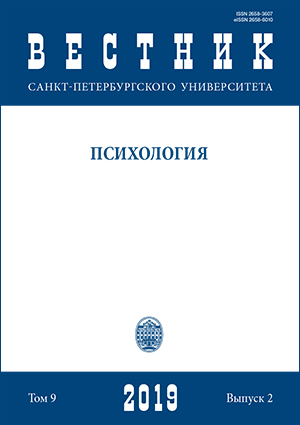Competence and PCC approach: opportunities and limitations
DOI:
https://doi.org/10.21638/spbu16.2019.202Abstract
The methodology and descriptions of professionally important qualities (PECs) of the sub- jects of activity (conventionally called the “PWC approach”) and competencies (the “com- petence approach”) are presented. It is stated that it is not constructive to resolve questions about phenomena understood as “professionally important qualities” (PEC) and “competen- cies” when compared as components of the binary opposition (... or ... or). A constructive solution can be the restoration of a whole series (continuum) of genetic transformations of the phenomenon (s), in different scientific traditions defined as “PWC”, “competence”, “abilities” (general, special, professional), etc. Both paradigms have their own capabilities and limitations. The PWC approach as a scientific paradigm is characterized by the following: extreme broad generalizations; often, the substitution of measurements and monitoring of the evolution of the STC by “judgments of common sense”; latently postulated preservation of the ICC throughout the subject’s professional life, etc. “Spontaneous opposition” to the basic principles of the ICC approach appears as a set of different, inconsistent and inconsistent points of view. K-approach as a scientific paradigm is characterized by: pragmatism of initial goals and objectives; empiricism; often the substitution of the scientific study of phenomena by the generalization of the opinions of expert practitioners; extensive approach to the study of competencies; solving issues of joint activities is presented through the expansion of the subject’s competence sets; insufficient attention to the development prospects of the qualities of the subject, his personal and professional development in the continuation of his career. The “spontaneous opposition” more often declares itself as a reasoned alternative approach, as a critic of opponents and arguing the advantages of its approach.
Keywords:
professionally important qualities, competencies, abilities, approaches, paradigms, opportunities and limitations
Downloads
References
References
faktor obrazovatel’nogo protsessa [Basic skills (key competencies) as an integrating factor of the educational
process]. Professional’noe obrazovanie i formirovanie lichnosti spetsialista. Nauch.-metod. sbornik [Professional education and the formation of the personality of a specialist. Scientific method, collection]. Moscow, 2002. 244 p. (In Russian)
American Psychologist, 1991, vol. 46 (10), pp. 1012–1024.
truda [Organizational psychology and psychology of labor] , 2017, vol. 2, no. 2, pp. 3–30. Available at: //http://work-org-psychology.ru/engine/documents/document241.pdf (accessed: 15.11.2018). (In Russian)
dolzhnostei gosudarstvennoi grazhdanskoi sluzhby [Methodological tools for establishing qualification
requirements for the filling of civil service posts]. Versiia 3.2. Moscow, 2017. 71 p. (In Russian)
Downloads
Published
How to Cite
Issue
Section
License
Articles of "Vestnik of Saint Petersburg University. Psychology" are open access distributed under the terms of the License Agreement with Saint Petersburg State University, which permits to the authors unrestricted distribution and self-archiving free of charge.




